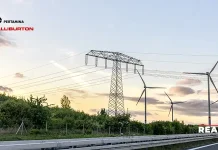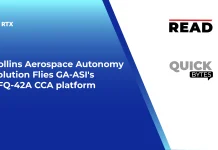Leading grocery retail group Ahold Delhaize USA has announced a partnership with global snacking leader Kellanova (formerly Kellogg Company) and North American agribusiness, Bartlett, to reduce Scope 3 greenhouse gas (GHG) emissions from wheat farming across the value chain. This collaboration aims to decrease Scope 3 emissions, improving farm and supply chain resiliency.
The pilot program, which is expected to kick off this summer, will leverage financial investments from Ahold Delhaize USA, Kellanova and Bartlett to support the adoption of regenerative agricultural practices among wheat farmers in North Carolina. The wheat harvested and milled from these farms will be used alongside conventionally grown wheat to produce Kellanova’s iconic Cheez-It® and Club® crackers. These products will be sold at the local brand stores of Ahold Delhaize USA in 2025.
“The companies of Ahold Delhaize USA are committed to offering more sustainable food products as we strive to create a healthier planet,” said JJ Fleeman, CEO, Ahold Delhaize USA. “An important step in this journey is reducing Scope 3 carbon emissions, which requires partnerships like this one with Kellanova and Bartlett. We’re excited to be a part of this collaboration as we focus on our Scope 3 commitments.”
Unique collaborative program
This is a unique program with stakeholders from across the supply chain – from field to mill to manufacturing facility to shelf – collaborating to improve the livelihood of U.S. farmers while reducing GHG emissions. This is a first of its kind program for both Ahold Delhaize USA and Kellanova.
“As part of our ambitious Kellanova Better Days Promise, we’ve committed to both reducing our emissions and advancing the well-being of people, including farmers, across our food value chain,” said Carrie Sander, Chief Customer Officer – North America, Kellanova. “We believe in the power of partnership and are excited to collaborate with Ahold Delhaize USA and Bartlett to help potentially improve outcomes for wheat farmers. This innovative program helps us simultaneously work toward both these goals.”
From farm to shelf
Regenerative agriculture focuses on soil conservation and improvement, creating a unique farming approach specific to the crop, climate and land. The process is as follows:
- Farmers grow regenerative wheat in Eastern North Carolina. Bartlett’s certified crop advisors will work with these farmers, providing technical assistance for implementing conservation practices to improve soil health, which improves water quality and helps reduce emissions.
- Bartlett combines the regenerative wheat with conventional wheat then mills it into flour at its recently expanded facility in Wilson’s Mills, N.C.
- Kellanova bakes the wheat into Cheez-It® and Club® crackers at its state-of-the-art facility in Cary, N.C.
- Ahold Delhaize USA brands to sell the crackers across their more than 2,000 local stores beginning in 2025.
“We’re excited to work with our customers and partners to improve on-farm environmental outcomes, while increasing overall sustainability across the milling and baking supply chain,” said Bob Knief, President of Bartlett, a Savage Company. “We have a strong commitment to continuous improvement and look forward to engaging with and supporting North Carolina wheat farmers in measuring and optimizing their sustainability performance.”
In addition to the regenerative wheat, a key output of this program will be agronomic insights on farm and supply chain resiliency. Arva Intelligence, whose mission is to empower farmers to grow their business, while driving a larger environmental asset economy, will use their CropForce™ platform, to measure, report, and verify impacts to the partners’ respective emissions reductions, providing scalable knowledge each company can potentially take forward into the development of other Scope 3 initiatives.
“Ninety-five percent of Ahold Delhaize USA emissions reside in Scope 3, which makes this program incredibly important,” said Marc Stolzman, Chief Sustainability Officer for Ahold Delhaize USA. “Not only will this help us on our race to Net Zero, but the data will help us to chart our future path for Scope 3 collaborations.”
SOURCE: GlobeNewswire




